In the opening moments of the Netflix documentary “My Octopus Teacher” — which took home a 2021 Oscar for best documentary feature — an octopus glides overhead while the soothing voice of filmmaker Craig Foster intones: “A lot of people say that an octopus is like an alien. But the strange thing is, as you get closer to them, you realize you’re very similar in a lot of ways. You’re stepping into this completely different world, such an incredible feeling, and you feel as though you’re on the brink of something extraordinary.”
Foster’s journey to understand an octopus and himself — and the film that documents it — is indeed extraordinary. Viewers witness a man coping with exhaustion and burnout regain purpose by developing a relationship with an octopus in the Great African Sea Forest off the tip of South Africa.
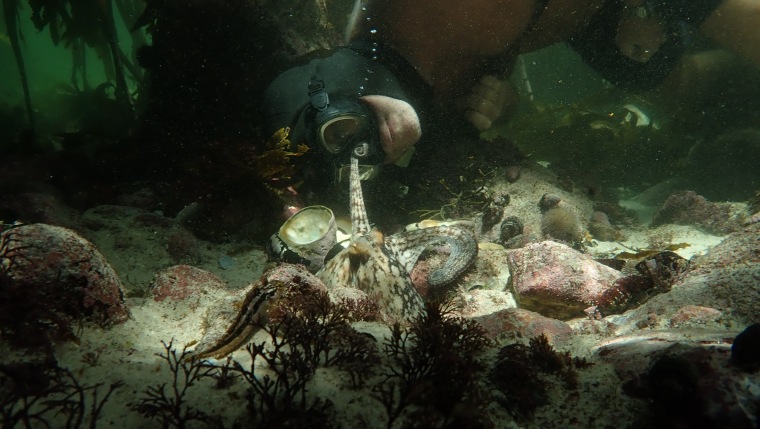
Every day for a year, Foster went free diving without a wetsuit or scuba gear in the frigid ocean near Cape Town, with water temperatures as cold as 46 degrees Fahrenheit, to visit an octopus. He wanted to be “more like an amphibious animal” without barriers between himself and the marine environment.
Watching trust build over time between a man and a curious, creative octopus referred to only as “her” — Foster never named her because “she was not a pet and I respect her wildness,” he told TODAY in an email — is spellbinding.
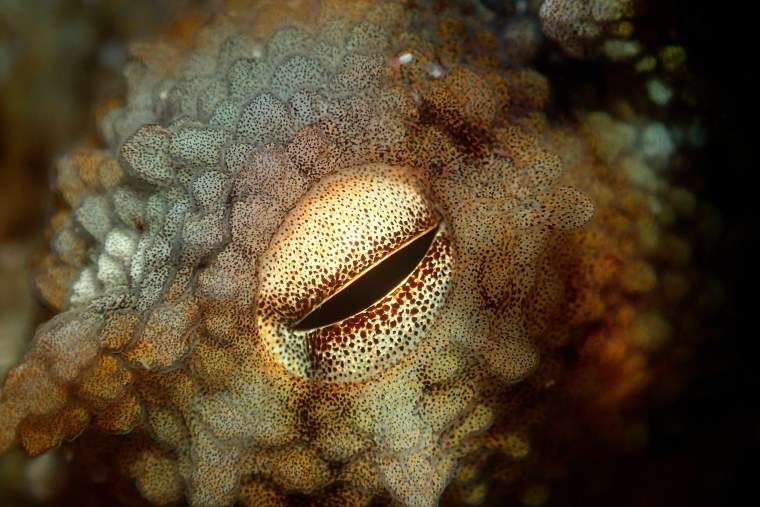
Words can’t do the film justice; viewing it is a sensory experience. But that hasn’t stopped the Twitterverse (or admittedly, this writer) from trying. Something about the film resonates deeply with both critics and the public. Comments range from “I’m never eating calamari again!!!!” and “I’m in tears” to “Really well done film that highlights some of the amazingness that exists in nature” and “The world would be a better place if every human watched this stunning piece of filmmaking.”
Pippa Ehrlich, director and editor of “My Octopus Teacher” and a member of the Sea Change Project, a nonprofit dedicated to connecting human beings to the wild and protecting the Great African Sea Forest, had never directed a feature-length film when she signed on to direct in March of 2017. She was so passionate about the project that she quit her job to work on the documentary.
“What I loved about this story is there was a story of positivity and hope that involved human beings and the natural world being in one place,” she told TODAY. “It was an opportunity to expand people’s perceptions of what the relationship between us and the wild can be.”
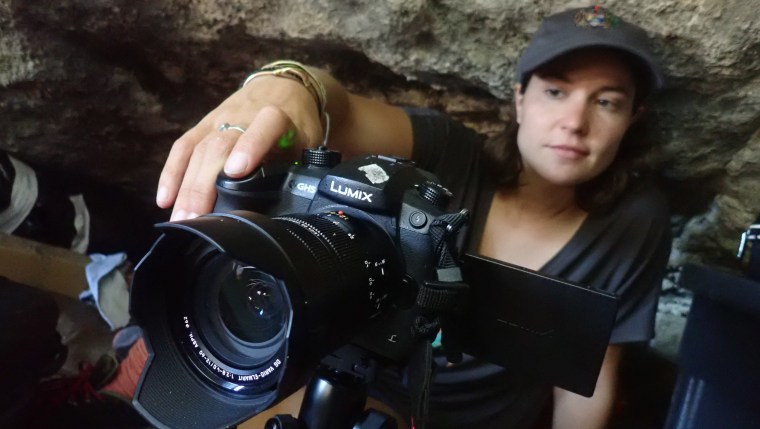
Ehrlich had already “fallen in love” with the kelp forest while free diving every day for about six months before Foster approached her with footage that he and cinematographer Roger Horrocks had taken of his experiences with the octopus. They’d mainly been interested in capturing images of the octopus, rather than Foster’s relationship with her.
Since Ehrlich’s body had already adapted to diving without a wetsuit in cold water, she was ready to help shape the storytelling by getting shots of Foster swimming through kelp forests and looking into holes in addition to interviews and views from land.
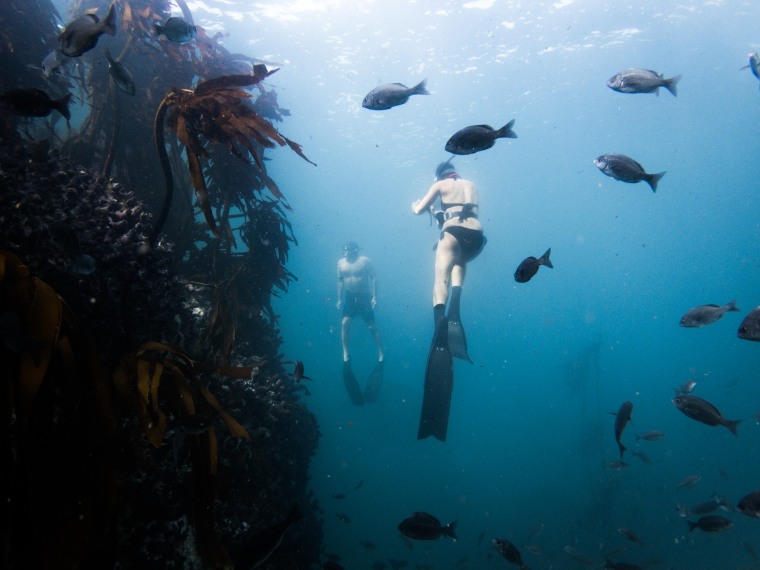
The process of additional filming and editing took three years. Much of the work above ground took place reviewing footage in Foster’s attic.
“Sometimes we worked for 18 hours a day,” she said. “Often we’d edit for six hours, go and shoot for three hours, and then come back and edit some more because we were so excited about what we’d got while we were in the water.”
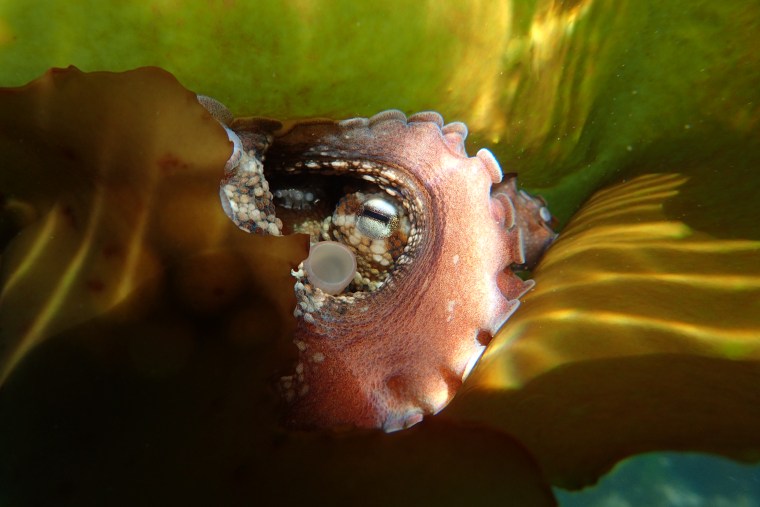
Ehrlich has been surprised and delighted by feedback for “My Octopus Teacher,” particularly hearing Jane Goodall say her favorite films are “The Lord of the Rings” and “My Octopus Teacher.” In another touching instance, a 6-year-old girl in India took the film’s trailer and spliced in her own narration, sharing everything she learned about octopuses from the documentary.
"I've read thousands of messages," she said.
Ehrlich hopes the film reminds viewers how important it is to stay connected with nature, and not just to depend on it for food and breathing — “every second breath that you breathe into your lungs comes from oxygen that is created by our oceans,” she noted — but our mental well-being as well.
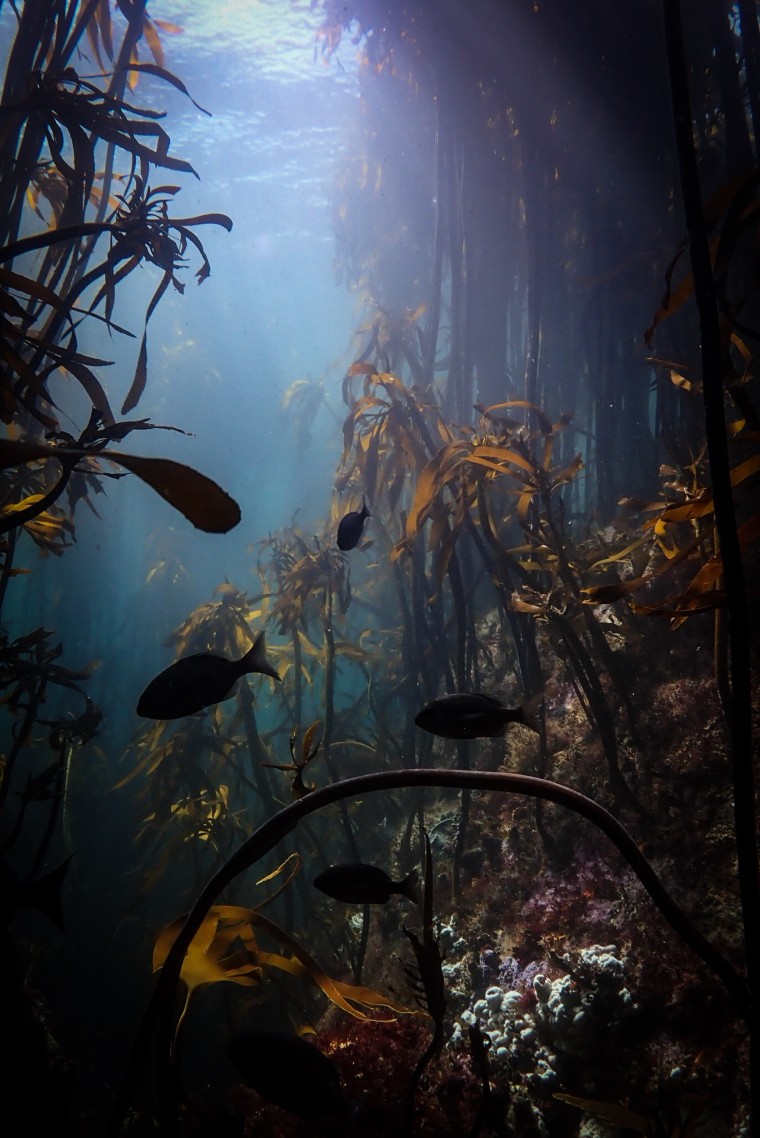
“To really put energy and time into nurturing our relationship with the wild is one of the most — and I’m speaking from experience now — one of the most reassuring and fulfilling things that you can do with your time,” she said. “It makes you think very differently about how we consume natural resources. It makes you think carefully about what this incredible natural system is giving to us, and what we can do in return, in terms of having a more reciprocal, respectful, even reverential relationship with the living planet.”
Ehrlich pointed out that few people know that 25% of global coastlines are kelp forests. Coral reefs get a lot of attention, but kelp forests were fairly unknown before the film.
“The incidence of endemic species in kelp forests is huge, but what’s happening with climate change is almost every kelp forest in the world is shifting and changing,” she said. “Very few of them are stable. For example, in Tasmania, kelp forests have disappeared over a number of years, and that’s because of climate change. In that case, a warm current drifted down, and with that warm current came a species of urchins that shouldn’t have been in that area, and those urchins literally just devoured the entire kelp forest. … We’re just trying to give kelp forests a voice.”
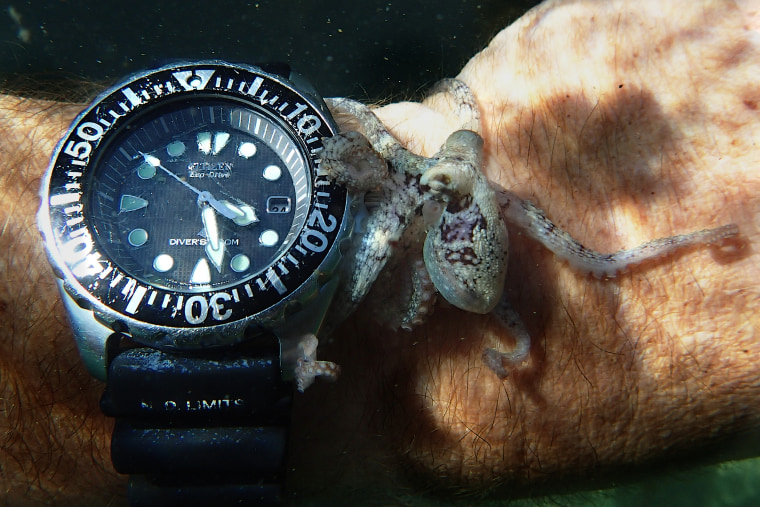
No matter which of the film's messages resonates most — whether it's about the environment, our personal relationships or the assumptions we've made about animal intelligence — word is getting out. College nursing professor Patty Graham was so moved by “My Octopus Teacher” that immediately after watching it, she texted a heartfelt recommendation to a large group of friends. The 45-year-old resident of Boulder, Colorado, said the film was a welcome escape from the challenges of 2020 and showed “anything’s possible.”
“It reminded me of how vast the world is and how small my problems are,” Graham told TODAY. “It was nice to escape the world, but still be reminded of the beauty of it because sometimes right now that’s hard to find.”
EDITOR'S NOTE (April 25, 2021, 6:45 p.m. PT): This story has been updated to reflect the film "My Octopus Teacher" taking home the award for best documentary feature at the 2021 Oscars.
